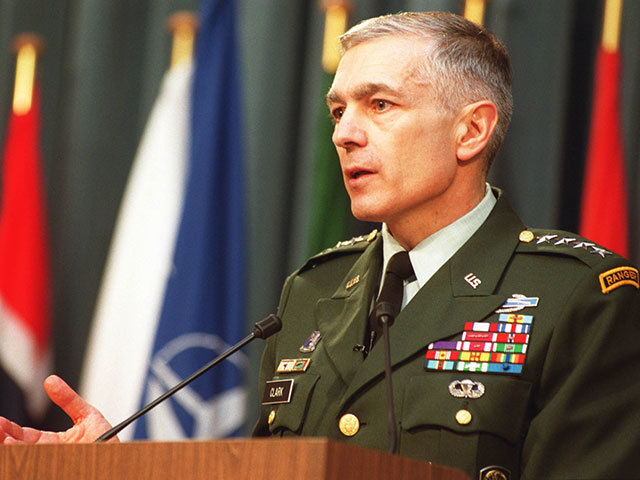
Fifteen years after Wesley Clark led NATO’s bombing campaign against Serbia, the retired US general is back in the Balkans looking for oil.
Clark, who was also a presidential candidate in 2004, is a director of two Canadian explorers working in Albania: Bankers Petroleum and Petromanas Energy. They are using modern drilling techniques to revive production in one of Europe’s poorest countries, where oil was first produced in the 1920s.
“Albania has an enormous economic significance for Europe as it has a robust supply of oil, and it should be a strong component of European energy policy,” Clark said in a telephone interview.
Oil exploration is part of Albania’s strategy to repair the damage of four decades of economic isolation under the communist regime of Enver Hoxha, who built more than 700,000 concrete military bunkers before he died in 1985.
Albania’s economy, where per capita income remains the lowest in Europe after Bosnia, Ukraine and Moldova, has almost doubled in size in the last decade, according to the World Bank.
Clark, who’s been on Bankers Petroleum’s board since 2008 and became a Petromanas Energy director last year, was NATO’s supreme allied commander in Europe when the alliance’s bombing campaign forced Serbia to withdraw from Kosovo, where ethnic Albanians make up the majority of the population.
Bankers Petroleum, based in Calgary, is using horizontal drilling and water flooding to revive Patos-Marinza, first discovered in 1928 and once Europe’s largest producers.
Output, which had dwindled to almost nothing in 2004, is now 20,000 barrels a day and Bankers plans to drill 170 wells a year to boost production to almost 50,000 barrels a day by 2020.
“Bankers is a lower risk investment alternative that provides predictable and growing production on a significant reserves and resource base,” Darren Engels, said an analyst at FirstEnergy who rates the company a buy.
Petromanas Energy, also based in Calgary, is a partner with Europe’s largest oil company, Royal Dutch Shell, to hunt for new oil fields in Albania, where the geology is similar to southern Italy, home to some of Europe’s largest onshore fields.
Two wells drilled by the companies have found about 375million barrels of oil, according to Petromanas, which holds a 25% stake in the venture. A third, called Molisht-1 is being drilled at the moment.
“What’s happening in Albania is representative of the fact that if price of oil stands at $100 a barrel, people are looking at new opportunities,” Clark said.
“If the price stays there, it has changed the geography of oil; it is happening in Albania, it is happening elsewhere in Europe.”
Recommended for you
